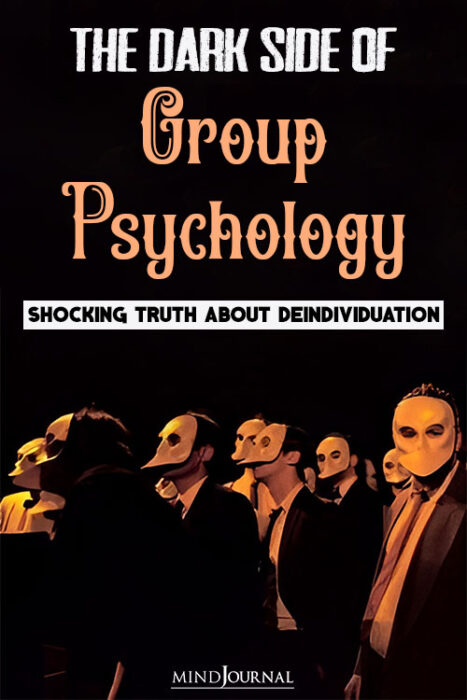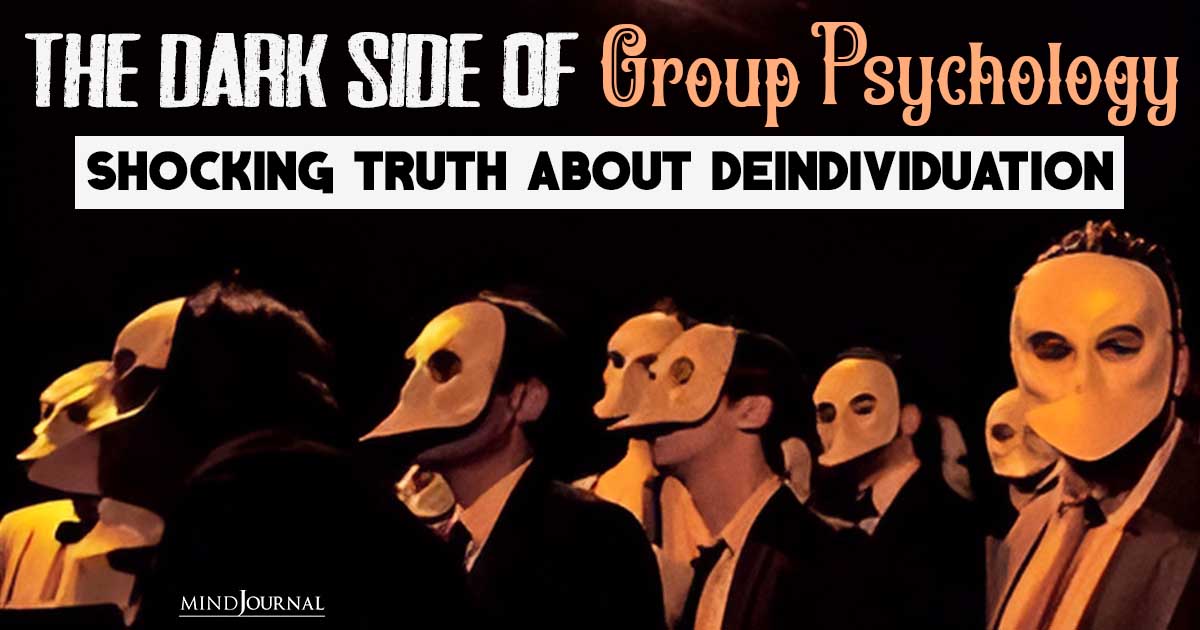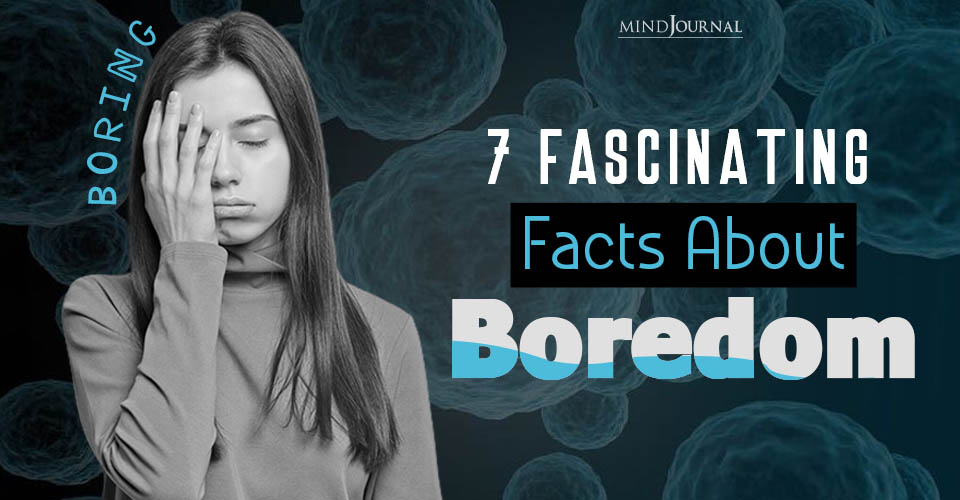Have you ever wondered why certain individuals often act differently when they are in a crowd or a group? Why does their behavior change suddenly? Why do they lose their sense of individuality? This phenomenon is known as deindividuation in psychology.
This psychological phenomenon plays a crucial role in shaping human behavior in social contexts. So, let us explore what is deindividuation, examples of deindividuation, what causes deindividuation and how we can overcome it.
What is Deindividuation?
Deindividuation is a psychological concept that refers to the loss of self-awareness and individual identity when individuals are part of a larger group or crowd.
In such situations, people may experience a reduced sense of personal responsibility and accountability for their actions. This diminished self-awareness often leads to a deviation from typically accepted moral and social norms, resulting in behavior that an individual might not exhibit when alone.
Related: Denial Of Bad Behavior: What You Can Do

What Causes Deindividuation? 3 Factors You Should Be Aware Of
While there may be multiple contributing factors, deindividuation can be influenced by the following factors:
1. Anonymity
When individuals feel anonymous and believe that their actions cannot be attributed to their personal identity, they are more likely to engage in behaviors they would otherwise avoid.
Anonymity can arise from physical factors, like wearing masks or costumes, or from psychological factors, such as being part of a large crowd.
2. Diffusion of Responsibility
In group settings, individuals often experience a diffusion of responsibility, wherein they believe that their actions are shared among the entire group. This diffusion reduces the personal sense of accountability, leading to a decreased likelihood of self-regulation.
3. Altered Perception of Others
According to deindividuation in psychology, this phenomenon can also be triggered by a change in perception of others within a group. When individuals perceive others as faceless, uniform, or as part of an anonymous mass, it becomes easier to dissociate their actions from the consequences. This can further promote uninhibited behavior.
What are Some Examples of Deindividuation in Real-Life Situations?
There are several real-life scenarios where deindividuation can be observed. Some of them are mentioned below –
1. Rioting and Looting
Instances of riots and looting are some practical examples of deindividuation in action. When individuals become part of a large, chaotic crowd, they may feel less accountable for their actions, leading to destructive and unlawful behaviors that they may not engage in on an individual basis.
Related: 8 Reasons Why Being BOLD is a Scary Proposition
2. Online Behavior
The anonymity provided by the internet can foster deindividuation. People may feel more comfortable engaging in cyberbullying, trolling, or making hostile comments online, as they are shielded from the immediate consequences of their actions. This can allow them to dissociate from their real-life identities.
3. Hazing Rituals
As per deindividuation in psychology, it can also occur in certain group initiation rituals, such as hazing. Newcomers to the group may be subjected to degrading, humiliating, or harmful activities while the perpetrators feel less personal responsibility due to the collective nature of the event.
4. Sports Events
Large sports events, such as football matches or basketball games, often witness instances of deindividuation. Fans wearing team jerseys, face paint, or masks may engage in aggressive or rowdy behavior that they would not typically display in their day-to-day lives.
The anonymity and shared excitement within the crowd can reduce inhibitions and lead to actions that deviate from societal norms.
5. Halloween and Costume Parties
Even seemingly harmless events like costume parties or Halloween celebrations can trigger deindividuation. The act of wearing costumes and masks can create a sense of anonymity that allows individuals to behave outside their usual boundaries.
People may engage in pranks, mischief, or even acts of vandalism while under the disguise of their costumes.
It is important to note that deindividuation does not always lead to negative or harmful behavior. In certain situations, it can also facilitate prosocial actions, such as collective acts of charity or social activism.
However, understanding the potential risks and being mindful of the factors that contribute to deindividuation can help us navigate social contexts responsibly.
Related: 5 Reasons Why You Hate People According To Psychology
How to Prevent Deindividuation
Recognizing and addressing deindividuation can help mitigate its negative consequences. Here are some strategies to prevent deindividuation:
1. Increased Personal Identifiability
Encouraging individuals to stand out as individuals within a group can reduce the likelihood of deindividuation. This can be achieved by promoting personal identification, such as name tags, personalized uniforms, or clearly visible individual attributes.
2. Accountability and Consequences
Reinforcing the sense of personal responsibility by emphasizing individual accountability can prevent deindividuation. Highlighting the potential consequences of one’s actions, both positive and negative, can help individuals regain self-awareness and self-regulation.
3. Normative Influence
Creating an environment where positive social norms are reinforced can help combat deindividuation in psychology. By promoting prosocial behavior and discouraging deviance, individuals are more likely to adhere to societal norms and maintain their individual identities.
4. Empathy and Perspective-Taking
Encouraging empathy and perspective-taking can counteract the deindividuation process. By fostering an understanding of others’ perspectives and promoting compassion, individuals are less likely to engage in negative or harmful behaviors.

Takeaway
Deindividuation in psychology is a fascinating phenomenon that sheds light on the complexities of human behavior in social contexts. By understanding the causes of deindividuation and exploring real-life examples, we can gain insights into why individuals may act differently when part of a group.
Moreover, by implementing strategies to prevent deindividuation, we can foster a sense of personal responsibility and promote positive behavior within society. As we navigate an increasingly interconnected world, it becomes crucial to address deindividuation to ensure the well-being and harmony of our communities.
Related: 4 Ways To Strengthen A Resilient Mindset Amidst Adversity
Frequently Asked Questions (FAQs):
What is the meaning of Deindividualism?
Deindividualism refers to the loss of individual identity within a group, leading to conformity and uniformity.
What is deindividuation and why does it occur?
Deindividuation is the loss of self-awareness and personal responsibility in groups, often resulting in impulsive behavior.
Why is deindividuation bad?
Deindividuation can lead to unethical actions, reduced accountability, and increased likelihood of aggression or negative behavior.









Leave a Reply
You must be logged in to post a comment.